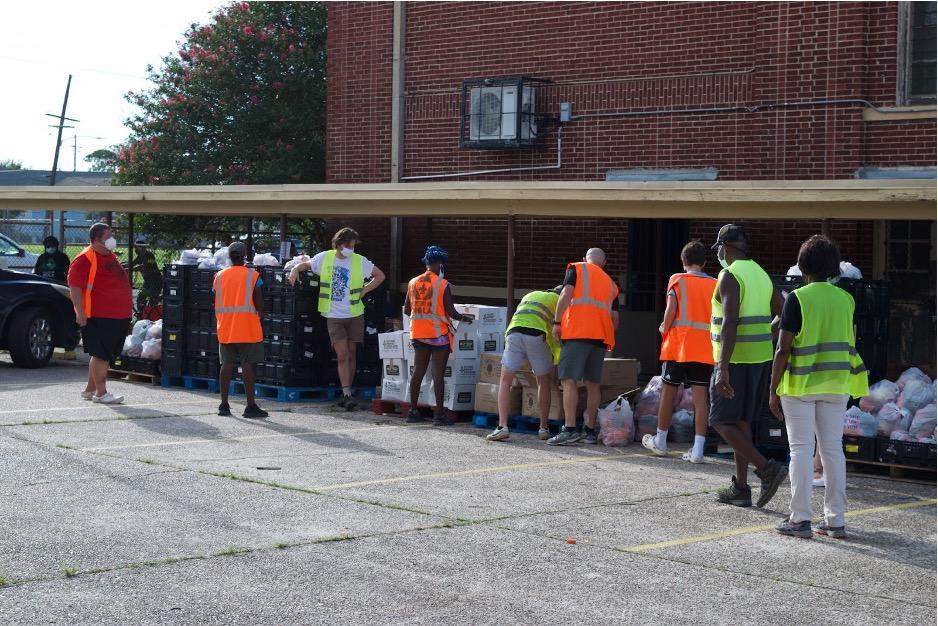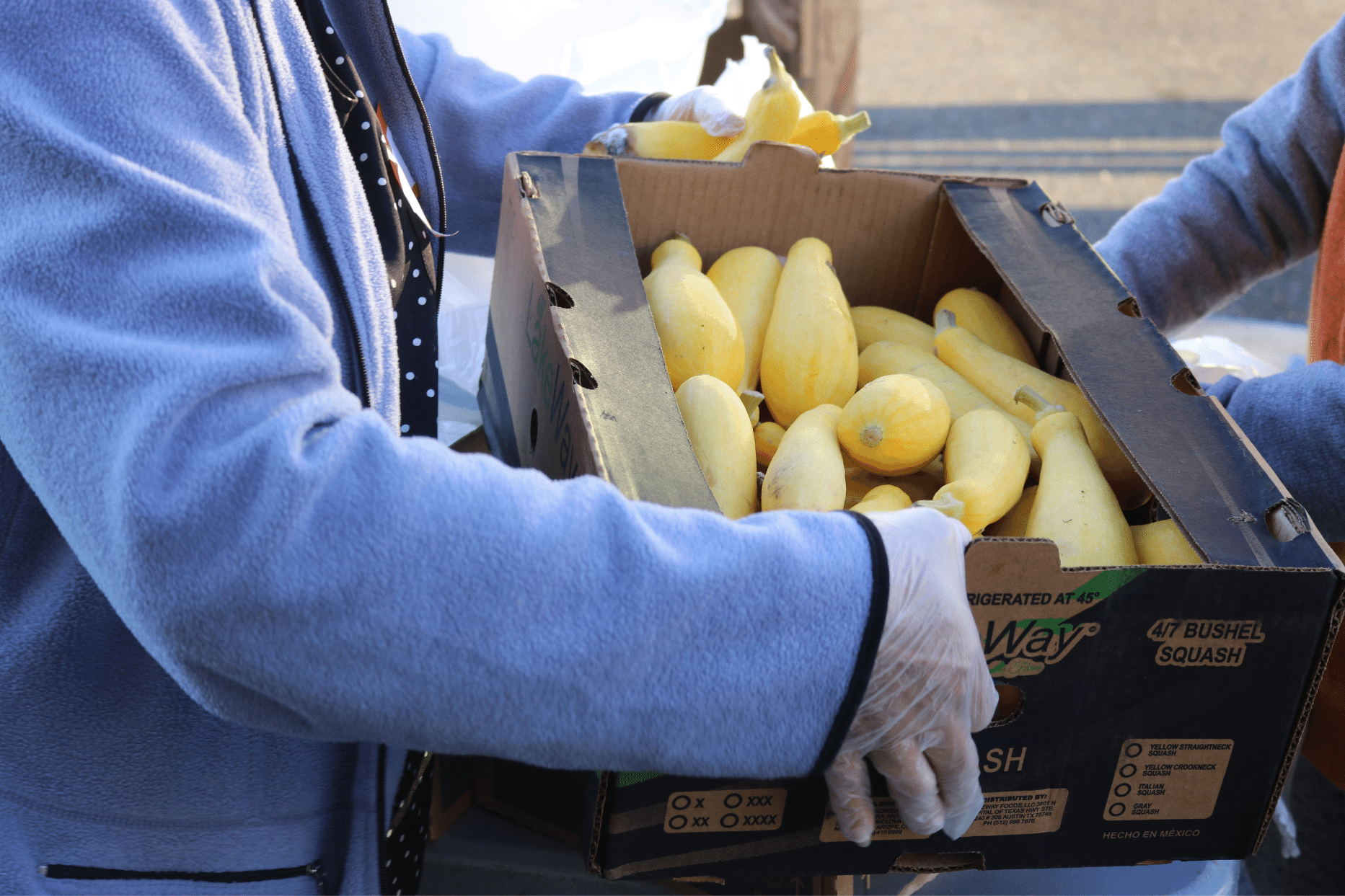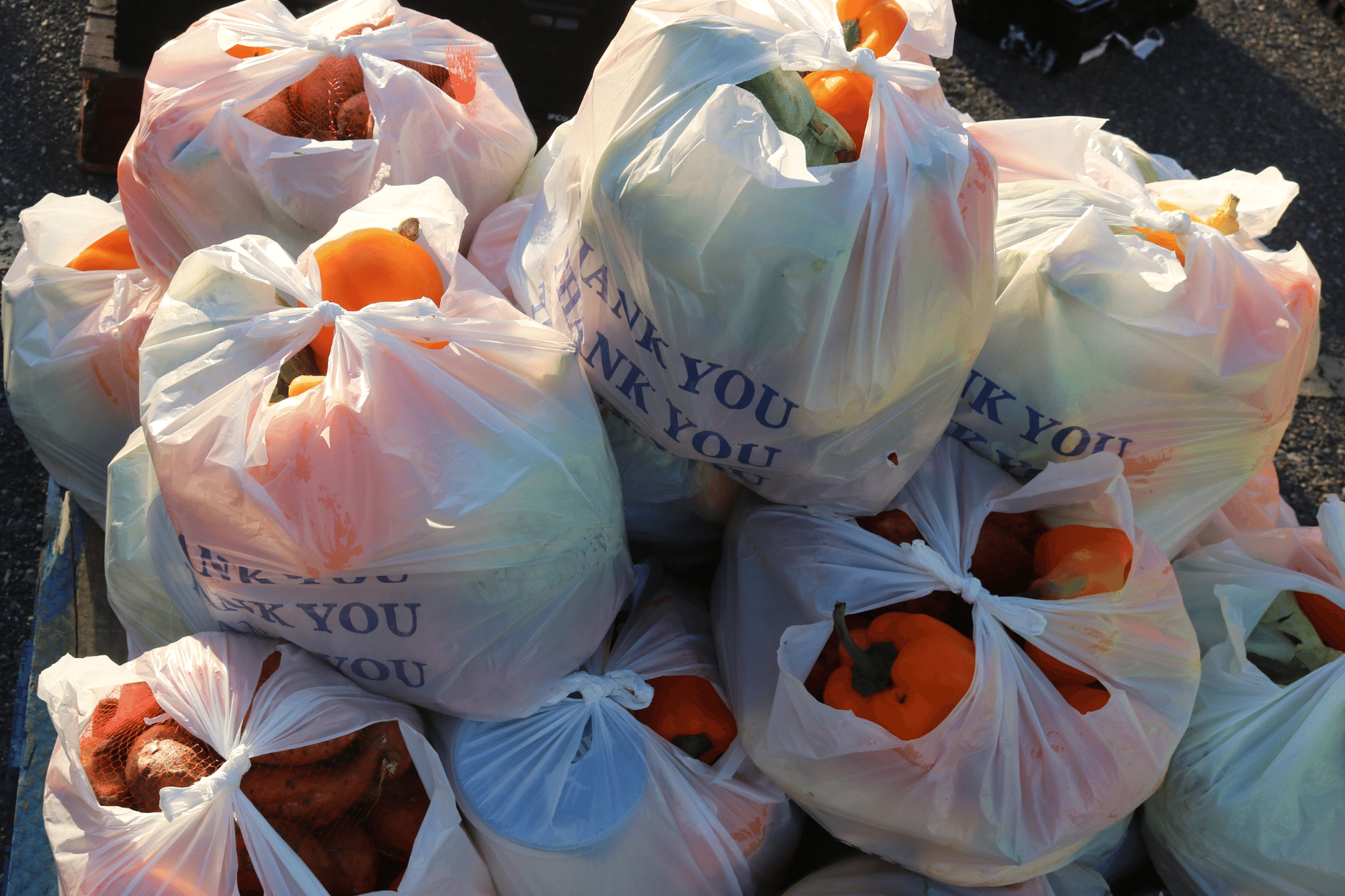By: Savanah Koester, Austin Stanley, Christian Suddath, and Yuhao Zhou

Volunteers at Our Lady Star of the Sea Church preparing for families to come through to pick up food.
Being food insecure typically has a negative connotation associated with it because most people think that you have to be poor to be food insecure, but that is not the case. Due to the increase in the cost of living, people may have multiple jobs, but at the end of the day, it may come down to choosing between putting food on the table or covering other necessary expenses such as gas and rent. With this in mind, Culture Aid NOLA (CAN) was started in March 2020 to begin breaking down these stereotypes, with the goal of fighting food insecurity brought on by poverty and the deteriorated employment conditions brought on by the pandemic. Culture Aid feeds those who are food insecure in New Orleans without any boundaries attached. The term “no boundaries” means that no matter your situation, as long as there is food available, you can receive the food that Culture Aid is giving away. By providing fresh food twice a week on a first-come, first-serve basis, CAN is providing food for over 1,500 families per year and distributed around 2 million pounds of food between 2020 and 2021.

Volunteers preparing food to be packed for distribution. Fresh produce is a key staple for Culture Aid NOLA because it is usually the most expensive in the store and is vital for healthy living.
1 in 4 people in New Orleans do not have access to grocery stores, and therefore, live in food deserts. This is nearly double the national average. A lack of transportation and poverty levels are the main causes of food insecurity, which is why food stamps providing free food at grocery stores is an ineffective approach. Culture Aid NOLA recognizes these issues by inserting themselves in the driest areas of the city, ensuring they can accommodate those coming on foot as well as carpooling.
According to the research from Loyola University and U.S. Bureau of Labor Statistics, the poverty rate in New Orleans is 23%, which is twice the average level in the US. Additionally, New Orleans has the second-highest food insecurity rate in the US. Fifty-four percent of New Orleans’ population falls into the ALICE demographic. ALICE stands for Asset Limited, Income Constrained, Employed. This is significant because people are working paycheck to paycheck to provide the necessary goods for their homes. Even though they are employed, sometimes holding multiple jobs, they are still considered food insecure because they might have to decide “if they want to put gas in their car or if they want to put groceries on the table or if they want to get insulin for their kid” (Ellie Duff, Culture Aid NOLA’s Interim Executive Director and Operations Manager).

Food packed and ready for distribution. All families receive one bag of produce and one bag of dry goods, along with any extra goods that Culture Aid has had donated.
The biggest part of this story is the city we are in. What is New Orleans? For people who visit this city, New Orleans means delicious food that mixes exotic delicacies, music, and other artistic productions that express a history of influences, struggles, and spirit brought by people from all over the world. Mardi Gras showcases the energy and harmony of cultures coexisting here. The city’s culture is supported by restaurant workers, artists, musicians, and bartenders, but these jobs can make it difficult to break even economically, especially when there is a lack of tourism, as seen during the pandemic. When the New Orleanians who cook food, play music, design streets, and create Mardi Gras are struggling, the very essence of New Orleans is threatened. If the workers are not able to feed themselves, they are unable to contribute to the city’s culture in the ways they would like, even risking homelessness. In this sense, Culture Aid NOLA’s main practice of providing food to the food insecure directly makes an impact on keeping the city’s culture alive because even though someone might have multiple jobs, they may still need food. Think of your favorite hole-in-the-wall restaurant; do you know the servers’ names? They might be struggling in ways you can’t see. The people who keep you fed sometimes cannot do the same for themselves. But this is why CAN was founded, to take that pressure off the backs of the workers so they can continue making the city unique without having to sacrifice other essential needs, like gas or medication. Volunteering with CAN allows those in the city to give back to the people who give so much to us.
For more information or to volunteer, visit cultureaidnola.org
 NOLAbeings Multimedia artist Claire Bangser created NOLAbeings as a portrait-based story project that marries...
NOLAbeings Multimedia artist Claire Bangser created NOLAbeings as a portrait-based story project that marries...  Voodoo in New Orleans: Reviving history: New Orleans fortune telling This article takes a deep dive into the history of Voodoo in New Orleans, its hybridization with Catholicism, and its present-day place in the city's culture. The author visits fortune-tellers in the French Quarter, using their guidance as a tool for introspection rather than a deterministic predictor of the future. Through her experiences in New Orleans, the author feels a mystical connection to both the past and the future.
Voodoo in New Orleans: Reviving history: New Orleans fortune telling This article takes a deep dive into the history of Voodoo in New Orleans, its hybridization with Catholicism, and its present-day place in the city's culture. The author visits fortune-tellers in the French Quarter, using their guidance as a tool for introspection rather than a deterministic predictor of the future. Through her experiences in New Orleans, the author feels a mystical connection to both the past and the future. 